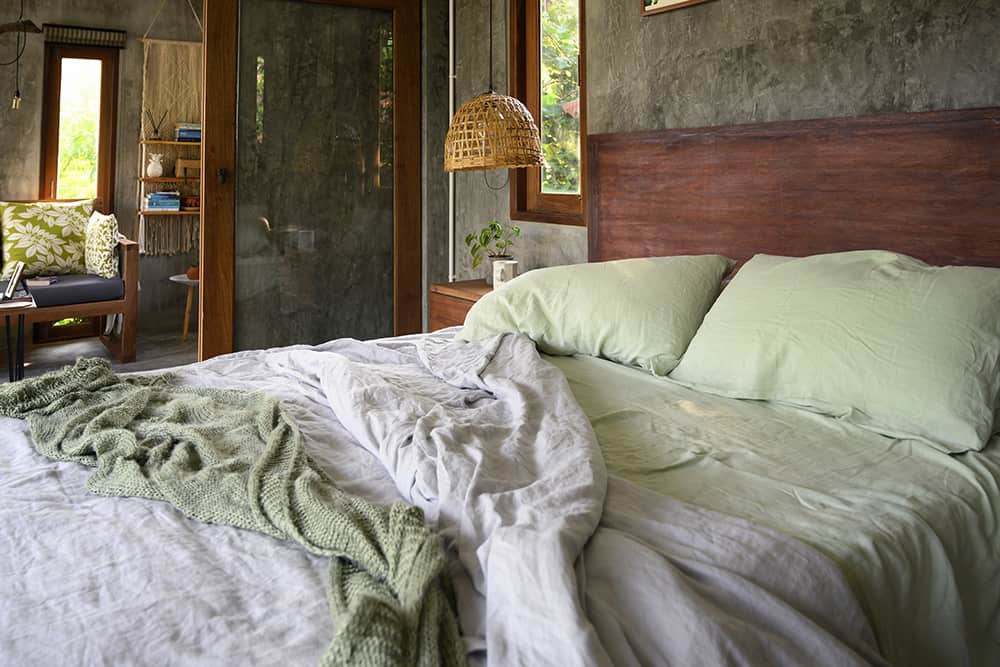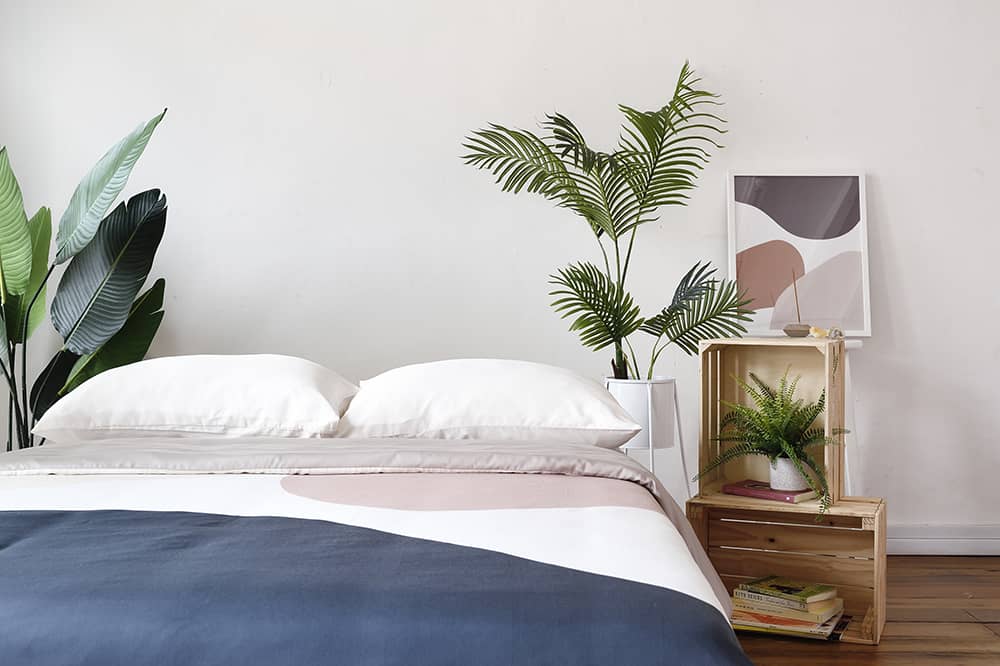In the same way sommeliers help to pair food and wine, Sunday Bedding is here to help you pair the right bedding to your sensitive skin. Here are its tried, tested and true solutions to avoid the itchies and scratchies while you sleep.
We have enough to worry about in our everyday lives that bedtime should be a worry-free space to escape it all. The only problem we want to be faced with in this zone is getting out of bed in the morning. But a surprising number of people are still spending the night cuddling with chemicals, dust, dander, feathers and all things itchy and scratchy. Indeed, buttery soft sheets that are natural and free from everything but love can cost more than a kitschy IKEA set, but a night in hypoallergenic bed is the stuff that dreams are made of. We also spend a third of our lives in our beds so think about it in a cost per use kind of way.
It seems like we’re always on a quest for a goodnight’s sleep, and Sunday Bedding caught wind of this and fired us over a couple of bedroom hacks to help us sleep better. Aside from being hypoallergenic, Sunday Bedding just make great sheets, at reasonable prices with, less jargon — a little bit of Sunday every day.
1. Try sleeping in linen sheets
Linen is a fantastic choice for people with sensitive skin who appreciate the finer things in life — like aesthetics. “Linen is anti-static, so it does not cling on to the body and stays cleaner longer as it naturally repels dirt. This makes it suited for those who are particularly sensitive towards dust/dirt. But it also has a natural look and feel, and its wrinkles are all part of its charm. This means making the bed is fuss-free as you don’t need to straighten or iron your sheets for that rustic look in your bedroom.” Linen is also incredibly durable so it can withstand frequent washing (another plus for people that wash sheets frequently to combat allergies) and can easily last ten years or more. In fact, linen used to be passed down from one generation to another in Europe proving just how well it holds up. Check out Sunday Bedding’s linen range here.
2. Organic cotton is also a dreamy choice
Put it this way, a lot of baby clothes are made from organic cotton. And that’s because not only is cotton all-natural, but it’s free from dying agents and harmless to the planet. “Using 100% GOTS certified cotton means that no toxic chemicals have been used during the manufacturing process, so it minimises any potential causes of skin irritation.” Also, it’s worth mentioning that it’s not just people with allergies who are sensitive to chemicals. Allergies are often caused by a sensitivity to chemicals. Whichever way you look at it, sleep in a bed dressed in organic cotton and you’re well on your way to baby soft skin. Peruse Sunday Bedding’s organic cotton collection here.
3. Bamboo sheets are the stuff
The Sunday Bedding folks believe that sleep is a personal experience. And if you’ve ever had the privilege of sleeping in bamboo, you’ll understand why Sunday Bedding consider it an experience. “Bamboo is really smooth and silky. It creates less friction between your skin and the fabric – so it is also suited for those with sensitive skin. It’s also moisture-wicking, so it’s great for those that sweat easily or sleep without the air-conditioner.” Although it’s nothing new on the market, Bamboo has been lauded in recent years for being a solution for eczema sufferers and newborn babies. Jump on the bamboo bandwagon with Sunday Bedding here.
4. Opt for TENCEL™ over down
This is an easy one. Although down duvets can make a bed feel not far off from sleeping on a marshmallow, for anyone who has sensitive skin or allergies, it’s literally a bed of nightmares. You might not even know it, but if you wake up a little sniffly, your down duvet is more than likely a culprit. Fortunately, natural fibres have come along way and offer an allergy-free experience that is one up on sleeping on a marshmallow — a cloud! “TENCEL stuffing is lighter than traditional down feather stuffing, so the TENCEL duvet insert is more suited for warmer weather. It is also suited for those that may be allergic to wool or goose down. TENCEL is also moisture absorbent, making it suited for humid conditions since it reduces the build of odour and perspiration.” Bid farewell to feathers with a TENCEL insert here.
5. Wash your sheet a little more often
Forgetting about fabrics for a minute, Sunday Bedding recommends washing your bedsheets more frequently. How often should you wash them? “It really depends on your lifestyle, although the average we’ve seen would be washing your sheets once every two weeks. If you have pets, kids and severe skin allergies, then wash your sheets more frequently and opt for durability when picking your materials like linen or cotton — there’s a reason why hotels use cotton.”
That said, if you don’t sweat as much and are mostly sleeping with an air-conditioner on, you don’t need to wash them as frequently. For duvet inserts, Sunday Bedding recommends washing them one to two times a year. “Unlike bedsheets, the insert does not come into direct contact with your body sweat, oils or scents.”




